2014

(Vatican Radio) Pope Francis received the President of the Republic of Cyprus, Nicos Anastasiades, this morning at the Apostolic Palace in the Vatican. A communiqué from the Press Office of the Holy See says the Pope and the President held cordial discussions in which they covered a number of topics, including the role of religion in society and the importance of religious liberty. The leaders expressed satisfaction at the resumption of negotiations to end the four-decade division of the island between Greek and Turkish Cypriots. Below, please find the full text of the statement from the Press Office of the Holy See:
******************************
This morning in the Vatican Apostolic Palace, the Holy Father Francis received the
President of the Republic of Cyprus, His Excellency Mr. Nicos Anastasiades, who subsequently
went on to meet with His Excellency Archbishop Pietro Parolin, Secretary of State, accompanied
by Archbishop Dominique Mamberti, Secretary for Relations with States.
During the cordial discussions, which highlighted the good relations between the Holy See
and the Republic of Cyprus, mention was made of several matters of common interest, such as
the positive role of religion in society and the protection of the right to religious freedom.
Satisfaction was expressed at the resumption of negotiations aiming at the development of a
shared solution to the Island’s current situation.
Finally, the Parties indicated their concern regarding the political instability affecting the region of the Near and Middle East, which leads to great suffering on the part of civilian populations, and shared their hope that the Christian communities in the various countries may continue to offer their contribution to building a future of material and spiritual wellbeing.
Text from Vatican Radio website
******************************
This morning in the Vatican Apostolic Palace, the Holy Father Francis received the
President of the Republic of Cyprus, His Excellency Mr. Nicos Anastasiades, who subsequently
went on to meet with His Excellency Archbishop Pietro Parolin, Secretary of State, accompanied
by Archbishop Dominique Mamberti, Secretary for Relations with States.
During the cordial discussions, which highlighted the good relations between the Holy See
and the Republic of Cyprus, mention was made of several matters of common interest, such as
the positive role of religion in society and the protection of the right to religious freedom.
Satisfaction was expressed at the resumption of negotiations aiming at the development of a
shared solution to the Island’s current situation.
Finally, the Parties indicated their concern regarding the political instability affecting the region of the Near and Middle East, which leads to great suffering on the part of civilian populations, and shared their hope that the Christian communities in the various countries may continue to offer their contribution to building a future of material and spiritual wellbeing.
Text from Vatican Radio website
PRINCE WILLIAM AND HARRY HELP VICTIMS OF THE FLOOD IN UK
The United Kingdom has experienced some deadly flooding. Severe floods and hurricane force winds continue to engulf large parts of the country - forcing more than 6,000 households to evacuate their homes and causing massive damage to businesses, farms, roads and railway lines. 84,000 homes are without power. Eight have died from the extreme weather conditions. Prince William and his brother Prince Harry helped the military in the efforts to subdue the waters.
IRENA SENDLER WWII HERO SAVED 2500 JEWISH CHILDREN
Today is the birthday of the WWII hero Irena Sendler. She was born Irena Krzyżanowska on 15 February 1910 Warsaw, Poland. Irena Sendler led a secret operation to successfully smuggle 2,500 Jewish children out of the Warsaw Ghetto, saving them from almost certain death, was born in 1910. Sendler was a Polish Catholic nurse and social worker who began aiding Jews as early as 1939 after the Germans invaded Poland. At first, she helped to create false documents for over 3,000 Jewish families and later joined the Zegota, the underground Polish resistance organization created to aid the country's Jewish population.
Sendler died on May 12 2008 (aged 98) Warsaw, Poland. She was a Roman Catholic. She married Mieczyslaw Sendler (1931-1947;[1] divorced) and Stefan Zgrzembski (1947-1959; divorced; 3 children) Mieczyslaw Sendler (1960s; divorced). Her parents were Stanisław Krzyżanowski Janina Krzyżanowska.
In 1943, Sendler became head of Zegota's children's division and used her special access to the Warsaw Ghetto, granted to Social Welfare Department employees to conduct inspections for typhus, to set up a smuggling operation. She and her colleagues began secretly transporting babies and children out of the Ghetto by hiding them in an ambulance with a false bottom or in baskets, coffins, and even potato sacks. The children were then given false identities and placed with Polish families or in orphanages. To allow the children to be reunited with any surviving relatives following the war, Sendler buried lists containing the identities and locations of the children in jars.
After rescuing over 2,500 children, Sendler was arrested by the Gestapo, tortured and sentenced to death. Fortunately, Zegota was able to bribe the German guards as she was on her way to execution and she was forced to live in hiding for the remainder of the war. In 1965, Sendler was honored by Yad Vashem as one of the Polish Righteous among the Nations for her wartime efforts. She passed away in 2008 at the age of 98.
SHARED FROM FACEBOOK/GOOGLE
Sendler died on May 12 2008 (aged 98) Warsaw, Poland. She was a Roman Catholic. She married Mieczyslaw Sendler (1931-1947;[1] divorced) and Stefan Zgrzembski (1947-1959; divorced; 3 children) Mieczyslaw Sendler (1960s; divorced). Her parents were Stanisław Krzyżanowski Janina Krzyżanowska.
In 1943, Sendler became head of Zegota's children's division and used her special access to the Warsaw Ghetto, granted to Social Welfare Department employees to conduct inspections for typhus, to set up a smuggling operation. She and her colleagues began secretly transporting babies and children out of the Ghetto by hiding them in an ambulance with a false bottom or in baskets, coffins, and even potato sacks. The children were then given false identities and placed with Polish families or in orphanages. To allow the children to be reunited with any surviving relatives following the war, Sendler buried lists containing the identities and locations of the children in jars.
After rescuing over 2,500 children, Sendler was arrested by the Gestapo, tortured and sentenced to death. Fortunately, Zegota was able to bribe the German guards as she was on her way to execution and she was forced to live in hiding for the remainder of the war. In 1965, Sendler was honored by Yad Vashem as one of the Polish Righteous among the Nations for her wartime efforts. She passed away in 2008 at the age of 98.
SHARED FROM FACEBOOK/GOOGLE
OLYMPIC GOLD MEDALIST PROMOTES THE ROSARY IN KOREA
An Olympic champion helped the Korean Church to promote awareness of the rosary. The Catholic Bishops’ Conference of Korea (CBCK) highlighted South Korea’s first Olympic figure skating champion, Stella Kim Yu-na, and her rosary ring to the public. The Bishops’ Conference issued a press release on Sept. 30 promoting the rosary to Koreans. It was titled Yu-na’s ring is not a ring but the rosary. “Therefore we decided to use the well-known ‘Yu-na’s ring’ to explain the Catholic rosary prayer,” . Kim was baptized in May 2008. Since then, she has always worn a rosary ring and made the sign of the cross before competition. She was the Olympic figure skating gold medalist at the 2010 Olympic Winter Games in Vancouver, Canada. At that time, many youths thought her rosary ring was an engagement ring. The rosary is the Catholic Church’s universal and traditional prayer. Share this story!

ITALIAN PRIME MINISTER ENRICO LETTA RESIGNS
Italian Prime Minister Enrico Letta resigned on Fri. Feb. 15, 2014, after his own party voted for a change of government. This centre-left Democratic Party (PD) now has a new leader Florence Mayor Matteo Renzi. The party supported a call by Renzi for a more ambitious government to pull Italy out of its economic downturn. The party thanked Letta for his "positive work" but called for "a new phase with a new executive". "Italy cannot live in a situation of uncertainty and instability. We are at a crossroads," Renzi told the 140 member leadership committee.
BELGIUM LEGALIZES EUTHANASIA FOR CHILDREN - A CATHOLIC RESPONSE
Catholic Communications, Sydney Archdiocese report:
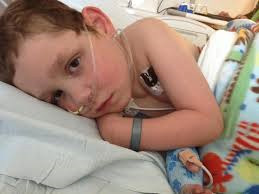
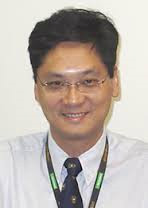

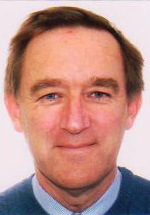
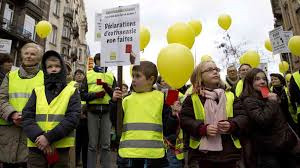
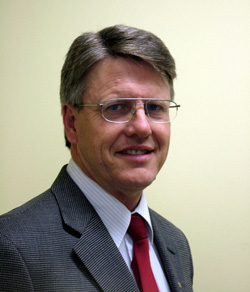
14 Feb 2014

For terminally ill children life may well still be worth living
Shockwaves have been felt across the world following the decision by Belgium to legalise euthanasia for on terminally ill children.
Belgium has now become the first country in the world to remove any age restriction on euthanasia or the killing of terminally ill children.
Twelve years after legalising voluntary euthanasia for consenting adults, this radical extension of euthanasia law was passed by Belgium's Parliament early this morning Australian time and gives children "the right to die."
Under the plan passed by the Belgium Parliament with an overwhelming majority of 86 to 44 there is no age limit to minors suffering from a terminal illness who can seek a lethal injection.
Claiming that there are strict provisos to the new law, the Bill insists that the child must be "in a hopeless medical situation of constant and unbearable suffering that cannot be eased and which will cause death in the short term."
Claiming that there are strict provisos to the new law, the Bill insists that the child must be "in a hopeless medical situation of constant and unbearable suffering that cannot be eased and which will cause death in the short term."
A psychologist must also determine if the young patients who wish to die are in full possession of their mental faculties. Parents are also required to give consent.
"It is a terribly tragic outcome when the best we can offer a suffering child is to kill them," says Chris Meney, Director of the Archdiocese of Sydney's Life Marriage and Family Centre. "It also reveals where such a distorted understanding of compassion can lead us and proves that once the euthanasia line is crossed, there is no limit."

Dr Richard Chye Director of Sacred Heart Palliative Care
As Dr Colin Patterson, Senior Lecturer in Moral Theology at the John Paul II Institute in Melbourne, and a former child and family psychologist points out children have incomplete ego development and maturity of the brain to be able to make such an overwhelming decision as to whether they wish to live or die.
"The case against children having the option of euthanasia is in essence the same as that for adults and infringes on one of the most fundamental moral laws - don't take innocent human life - in order to relieve the suffering of a person," says Dr Patterson calling this a "profoundly anti-social way of thinking."
Dr Patterson finds it difficult to fathom the reasoning or thinking behind Belgium's move.
"I suspect, underlying this bill, an increasingly persvasive mode of thought in Western societies that holds that life is really not worth living, and that options for escaping it must be continually expanded," he says.
"I suspect, underlying this bill, an increasingly persvasive mode of thought in Western societies that holds that life is really not worth living, and that options for escaping it must be continually expanded," he says.
One of the arguments against Belgium's new law is that the majority of teenagers and certainly most children under the age of 12 are too immature to grasp the implications of such a momentous and final decision. Also in many cases for those who are terminally ill their ability to reason and weigh all the consequences of such a decision, will be affected by medication as well as other factors such as metastasis of the brain or a lack of oxygen.
Dr Richard Chye, Director of Sacred Heart Palliative Care, Darlinghurst agrees that medication and other factors may affect a person's judgement but he says many of the children he sees, especially those who have been very sick over prolonged periods, such as those with leukaemia, are often wise and more mature than the average 10 or 12 year old.
He has no doubt many of these youngsters have a good understanding of their situation. But although these children frequently have a sense of foreboding that things are not going in the "right direction" before their doctors or parents are aware of this, it does not mean that they wish to end their lives. Instead while they may decide it is inappropriate to undergo more treatments to extend their lives, they do no express any desire to shorten what time they have left," he says.

Children unlikely to understand full implications of euthanasia
Dr Chye says that while the quality of life in the eyes of parents or doctors for a child who is extremely ill may seem poor, from the child's point of view the quality may still be okay.
"In terms of the Belgium law to allow children and minors to be euthanised this could be a real problem with adults imposing their own idea about what is or isn't quality of life."
He also has concerns about how such a law would determine what is a life threatening or life limiting illness.
"In one case overseas a severely depressed patient requested and received euthanasia. He had found life not worth living. But while depression is a very serious illness and accompanied by much suffering, does it qualify as life threatening? Where does this legislation draw the line and what illnesses come under the Act?"
Another leading palliative care specialist, Dr Frank Brennan asks a similar question and he also wants to know what the Bill means by "when suffering cannot be alleviated."
"What is the threshold for suffering under Belgium's new law? And what definition of suffering is being used?" he wants to know.
A consultant at Calvary and St George Hospital and a senior lecturer at the University of NSW's School of Public Health & Community Medicine, Dr Brennan is also concerned if any of Belgium's terminally ill children have the capacity to meet consent conditions for any procedure let alone a life or death decision.

Dr Frank Brennan of UNSW and Palliative Care Consultant at Calvary and St George Hospital
"Without having seen the wording of the Bill and only having read newspaper reports about giving minors 'the right to die,' I would say that the issue of competency to make such a decision is critical," he says.
To be considered competent as an adult to make a voluntary decision over one's health - even for normal everyday procedures - a patient must have a full understanding of the nature of the risk of any treatment, he says.
"The second is that they are able to retain the information and the third is that they must also be able to reason and weigh this information. Any flaw in any one of these three criteria may be make the consent invalid," he explains.
For children under Belgium's controversial euthanasia laws there is also the danger of "undue influence" Dr Brennan believes and points out that although it is unlikely this would to come from the child's parents, it is possible it may come from a medical practitioner or some other person involved with the child.
"Throughout human existence and throughout all cultures there has been a general ethos that children are one of the most vulnerable groups in the community. Any aspect and behaviour, either legal or illegal that may impact on this vulnerability, has always been and should always be of great concern," he says.
Dr Brennan is also concerned that permitting children to be euthanised will lead to a loss of trust in doctors.
"I understand that 16 paediatricians signed a petition advocating that the age of 18 be removed and that euthanasia to have no age limit. But what will the effect be on parents if the doctors they trust to save lives, are now advocating taking the life of a child," he says.
The Executive Director of Family Life International, Paul Hanrahan is another who is shocked by the new law and warns that the decision by Belgium's Parliament shows the inevitability of what begins as "voluntary euthanasia" results in the "voluntariness" being removed.

Protesters against decision to allow terminally ill children to choose euthanasia
"Nothing highlights this more than what occurred in Belgium this morning," he says pointing out that more and more cases of "involuntary" deaths by lethal injection are being documented in the Netherlands which was the first nation that legalised euthanasia.
In the Netherlands teenagers are able to seek death by lethal injection but unlike Belgium, there is no euthanasia offered to minors under the age of 12.
"I am deeply saddened by yesterday's development. I cannot believe that a country that has been so Christian can believe that children can make such informed life and death decisions for themselves," says Sister of Charity, Sr Annette Cunliffe, former Chair of Catholic Health Australia and current President of Catholic Religious Australia.
A spokesperson for the Little Company of Mary Health Care (Calvary) describes euthanasia as a public act with adverse consequences for society.
"One person aiding the death of another is a significant public act and worthy of public concern. It can lead to abuse, exploitation and attrition of care for the most vulnerable in our society, including children. Even when fully consented, the 'choice' to euthansia opens a society to believe that a life is not worth living. This concept can easily be transferred to vulnerable and sick children, elderly, disabled or mentally suffering people in similar circumstances. We understand that people may feel their life is not worth living but it is very dangerous for us as a society to develop policy and clinical practices that require that we agree with them," the spokesperson says.
The Little Company of Mary Health Care, a national healthcare organisation and well known for the Calvary private and public hospitals across Australia is one of the leaders in palliative care.

Chris Meney, Director of Life, Marriage and Family Centre
"Palliative care and pain management is better today than it was yesterday and through an investment in people and research will continue to provide comfort to dying children and adults tomorrow," the spokesperson says.
At Palliative Care Australia, CEO Yvonne Loxford makes it clear that euthanasia is not part of palliative care practice.
"Palliative care offers a holistic multi-disciplined approach and when we talk about children who are terminally ill, the entire family is involved in this care. Social workers and pastoral carers are an incredibly important part of palliative care particularly in helping support the family of terminally ill adults as well as children, and caring for these loved ones after the child or adult has died," she says.
Although palliative care for children in Australia is still somewhat limited, particularly for peri natal palliative care despite 1200 infants dying before their first birthday each year, Yvonne says this is beginning to change.
"What we need is more money going into palliative care, more positions in paediatric palliative care and more doctors and nurses training in this field," she says. "There is still very little research in peri natal palliative care and there is certainly a need to encourage scholars to do more research in this area and as well as encourage doctors and nurses to specialise in this type of care."
To find out more about palliative care which not only treats pain but also depression, emotions and helps support families and loved ones as well as the terminally ill log on to www.palliativecare.org.au
Archdiocese of Sydney Release Share
2014
TODAY'S SAINT : FEB. 15 : ST. CLAUDE DE LA COLOMBIERE
St. Claude de la Colombiere
JESUIT PREACHER AND MISSIONARY TO ENGLAND
Feast: February 15
 Information:
|
Claude de la Colombiere is best known for his association with St. Margaret Mary Alacoque and the devotion of the Sacred Heart, but his life has its own drama. He was sent to England after his spiritual direction of St. Margaret Mary was over and became embroiled in the Titus Oates "Popish Plot," was imprisoned, then banished from England. His story is part of the history of the seventeenth century.
He was born near Lyons in 1641 and entered the Society of Jesus at Avignon. After his novitiate, he taught grammar and the humanities. Even before his ordination to the priesthood, he gained a reputation as a preacher. After completing his studies in Paris, he became tutor to the sons of Colbert, the financial minister of Louis XIV, but was dismissed from his post and returned to Avignon.
In 1675, after his solemn profession as a Jesuit, he was appointed superior at Paray-le-Monial, in which the convent of St. Margaret Mary was located. Here he became her spiritual director, encouraged her in the spread of the devotion to the Sacred Heart, and was described by our Lord as His "faithful and perfect friend."
Because of his remarkable gifts and judgment, he was sent to England, to be court preacher to the duchess of York, wife of the future James II, and took up residence in London. His radiant personality and splendid gifts were noted by everyone. When the alleged "Popish Plot" to assassinate King Charles II shook the country, Blessed Claude was accused of complicity in the plot and imprisoned. Through the intervention of Louis XIV of France, he was released, then banished from the country. He spent his last years at Paray-le-Monial, his health broken.
He died on February 15, 1682, an apostle of the devotion to the Sacred Heart, and was beatified in 1929.
Thought for the Day: Blessed Claude was an amazingly gifted man, and he recognized that his gifts should be put at the service of others. He spent himself in the service of Christ and was chosen to direct someone with an important mission to the Church. Let us emulate Claude and place our gifts at the service of others.
From 'The Catholic One Year Bible': . . . "Come, follow me! And I will make you fishermen for the souls of men!" At once they left their nets and went along with him.-Mark 1:17-18
|
SOURCE http://www.ewtn.com/saintsHoly/saints/C/stclaudedelacolombiere.asp#ixzz1mVEEm5Ah
500 BUDDHIST AND HINDU YOUNG GIRLS MARRIED TO A TREE IN NEPAL
ASIA NEWS REPORT:
by Christopher Sharma
Every year, tribal Newaris celebrate a unique a fertility rite as a step towards the real "marriage". Critics view the practice as "superstition" and consider it a shortcut to child marriage.
_0213_-_Matrimonio_gruppo.jpg)
Kathmandu (AsiaNews) - More than 500 Buddhist and Hindu girls under the age of 12 took part in a group marriage during which they were married to a bael fruit tree.
The ceremony took place earlier this week in the heart of Kathmandu Valley, home to the Newari ethnic tribe, who are Hindu and Buddhist.
According to the tradition, before reaching puberty Newari Hindu girls must marry a bael tree, whose fruit is called aegle.
The marriage ritual is called Ehi in the local language, and involves girls between the ages of 5 and 12 years.
Typically, the ceremony lasts two days. It starts with purification rituals and ends with the Kanyadan, the moment when the father "gives" away his daughter.
Many of the girls do not understand the meaning of what they are doing. "This is my wedding," 5-year-old Prisha Shakya told AsiaNews. "My family gave me a new dress and some good food today. But I do not know more than that."
"This is part of our religious culture," Prisha's mother Sabita said. "We shall have a place in heaven if our daughters are married before menstruation."
According to Newari tradition, the aegle is the groom, symbolising the eternal bachelor Kumar, son of the Hindu god Shiva.
Marriage allows girls to become and remain fertile. The fruit must be ripe and juicy and must not be blemished. If it is, then the bride is bound to have a bad and unfaithful husband.
However, the most important reason behind this practice is that if the girl marries Kumar, she will remain pure and chaste, and will not be considered a widow if the "real" husband were to die, because she would already be married to a deity.
However, for Rishi Sapkota, an expert on Hinduism, the ritual can be dangerous. "Such practices favour child marriage. This tradition is based on superstition, not true religious teachings."
SHARED FROM ASIA NEWS IT
by Christopher Sharma
Every year, tribal Newaris celebrate a unique a fertility rite as a step towards the real "marriage". Critics view the practice as "superstition" and consider it a shortcut to child marriage.
_0213_-_Matrimonio_gruppo.jpg)
Kathmandu (AsiaNews) - More than 500 Buddhist and Hindu girls under the age of 12 took part in a group marriage during which they were married to a bael fruit tree.
The ceremony took place earlier this week in the heart of Kathmandu Valley, home to the Newari ethnic tribe, who are Hindu and Buddhist.
According to the tradition, before reaching puberty Newari Hindu girls must marry a bael tree, whose fruit is called aegle.
The marriage ritual is called Ehi in the local language, and involves girls between the ages of 5 and 12 years.
Typically, the ceremony lasts two days. It starts with purification rituals and ends with the Kanyadan, the moment when the father "gives" away his daughter.
Many of the girls do not understand the meaning of what they are doing. "This is my wedding," 5-year-old Prisha Shakya told AsiaNews. "My family gave me a new dress and some good food today. But I do not know more than that."
"This is part of our religious culture," Prisha's mother Sabita said. "We shall have a place in heaven if our daughters are married before menstruation."
According to Newari tradition, the aegle is the groom, symbolising the eternal bachelor Kumar, son of the Hindu god Shiva.
Marriage allows girls to become and remain fertile. The fruit must be ripe and juicy and must not be blemished. If it is, then the bride is bound to have a bad and unfaithful husband.
However, the most important reason behind this practice is that if the girl marries Kumar, she will remain pure and chaste, and will not be considered a widow if the "real" husband were to die, because she would already be married to a deity.
However, for Rishi Sapkota, an expert on Hinduism, the ritual can be dangerous. "Such practices favour child marriage. This tradition is based on superstition, not true religious teachings."
SHARED FROM ASIA NEWS IT
Subscribe to: Posts (Atom)




